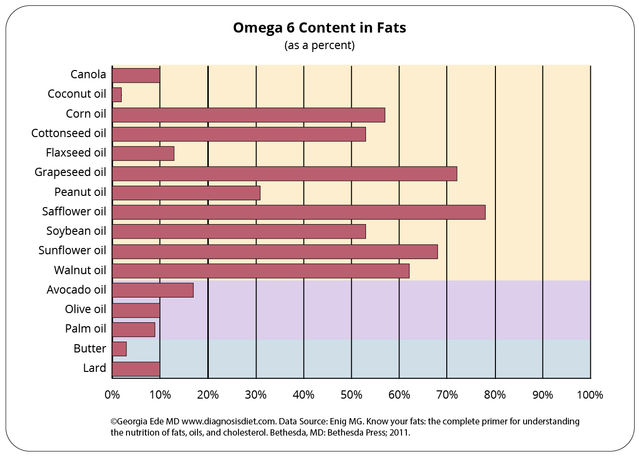Diet
Cooling Brain Inflammation Naturally with Food
Get to the root cause of psychiatric disorders without medications.
Posted December 27, 2017 Reviewed by Lybi Ma

Is your brain on fire—and not in a good way?
A staggering one in six Americans now take psychiatric medication in an attempt to manage psychiatric conditions such as depression, bipolar disorder, and schizophrenia. Unlike other medical problems, psychiatric problems shake us to our very core—affecting not only our productivity and health, but also our relationships with others and with ourselves. We tend to think of psychiatric problems as "chemical imbalances" in neurotransmitters like serotonin and dopamine, and most psychiatric medications are designed to try to bring these brain signalling molecules back into balance.
But what if we targeted inflammation instead? It is now well-established that inflammation plays a significant role in psychiatric disorders.
Inflammation and the Brain
The inflammation we’re talking about isn’t the type that makes your brain swollen, red, or sore—it’s inflammation on a microscopic level. When cells are in distress, they release tiny SOS signals called “inflammatory cytokines” that can be measured in the blood. Here are just a few of the compelling scientific clues connecting psychiatric disorders to inflammation:
- Levels of inflammatory cytokines tend to be higher in people with mood and psychotic disorders
- People with mood disorders and psychotic disorders are more vulnerable to infection and autoimmune diseases
- Drugs that increase inflammatory cytokines cause depression in some individuals
- Inflammatory cytokines disrupt normal production of serotonin and glutamate--key neurotransmitters involved in mood and psychotic disorders.
Ok, so if micro-inflammation causes “chemical imbalances” in the brain and contributes to psychiatric symptoms --what can you do about it?
How to Fight Brain Inflammation
Well, if taking two drugs instead of just one is your cup of tea, you could try taking an anti-inflammatory medication along with your psychiatric medication. Emerging research suggests medications like Celebrex may be helpful in some cases.
Or you could ask the logical question: what is causing brain inflammation in the first place?
As a psychiatrist passionate about the connection between food and brain health, I believe that the most powerful way to correct chemical imbalances in the brain is through food—because that's where brain chemicals come from.
Which foods are most likely to set your brain on fire? The two most powerful promotors of inflammation in our modern diet are refined carbohydrates and refined vegetable oils.
Refined Carbohydrates and Inflammation
Refined carbohydrates include all processed sugars and starches—sugar, corn syrup, fruit juice, flour, and most breakfast cereals are just a few of the foods in this category. [for a more complete list see my refined carbohydrates page] Refined carbohydrates cause unnaturally high spikes in blood sugar, which are powerful promoters of oxidation and inflammation. When cells are flooded with too much sugar (glucose) all at once, the chemical pathways they use to process glucose become overloaded, causing free radical by-products to spill out into the surrounding area. Free radicals are like little bulls in a china shop, bumping into neighboring structures and DNA, damaging cells from the inside out (“oxidation”). Cytokines like IL-6 and TNF-alpha are then called to the scene as first responders (“inflammation”).
Vegetable Oils and Inflammation
"Vegetable" oils are oils extracted from seeds--these include soybean oil, sunflower oil, canola oil, corn oil, and many, many others. We were taught that these oils were healthy for us because they are cholesterol-free, low in saturated fat and come from plants, but the truth is that they do not exist in nature, require industrial methods and often chemical solvents to extract, and are loaded with omega-6 fatty acids. Omega-6 fatty acids promote inflammation and fight against the precious omega-3 fatty acids our brains need to develop properly and function properly every day. Vegetable oils are found in nearly every processed food in the grocery store—baked goods, salad dressings, chips, snack bars, soups, sauces, fried foods, mayonnaise, etc.

Could it be that the rise of refined carbohydrates and refined oils in our modern diet helps to explain the skyrocketing prevalence of mental illness in our society? How about removing these from your diet to see if you feel better? Sounds easy enough, but both of these ingredients are now so ubiquitous in most of the foods we eat that most people can't even begin to imagine how they would get along without them. Processed modern foods are everywhere and make up nearly 2/3 of what Americans buy at the grocery store.
And there’s another problem: human nature.
The Psychology of Subtraction
We human beings prefer to believe that ADDING something to our diet or medicine cabinet will improve our health. It is SO much easier, of course, to simply take a supplement or add a colorful superfood to your grocery list, than to contemplate REMOVING something from your diet—particularly when that something is tasty, cheap, and addictive. Adding feels good, positive, proactive and exciting, whereas subtracting feels bad and negative, and doesn’t make a very sexy headline. Also…nobody gets rich advising you to take things out of your diet…
This is precisely why so many people turn to “superfoods” or expensive plant extract supplements that claim to fight inflammation, despite there being almost no experimental evidence in human beings to support this approach.
What does work?
Reducing omega-6 fatty acid intake by replacing “vegetable” oils with other fat sources has been shown to improve inflammation and even reduce chronic pain.
Removing most carbohydrate from the diet is also a powerful metabolic intervention. Low-carbohydrate diets have been shown in scientific studies to improve multiple markers of inflammation.
Unfortunately, we don’t know whether low-omega-6 diets or low-carb diets help with depression because those studies haven’t been done yet. The only diet that has been systematically tested on people with depression has been the Mediterranean diet. Studies do show that a Mediterranean diet can improve symptoms of depression compared to the average “Western” diet (you can read more about one of these studies right here on Psychology Today). Some believe that the Mediterranean diet is superior because it is high in potentially magical foods like olive oil or nuts—but this diet is also very low in refined carbs and processed foods—could that be the secret sauce?
Nutrition Rules to Cool Your Brain
Nutrition is simple. Natural foods are more likely to be good for you than unnatural foods.
It’s not that all carbs are bad. Natural carbs found in whole fruits and vegetables are probably fine (unless you have insulin resistance—see this post)
It’s not that all fats are bad. We need fat! Natural fats from whole animal and plant foods, such as lard, tallow, schmaltz, duck fat, egg yolks, olives, and avocados are nutritious and healthy; the belief that they cause heart disease is not supported by science.
There are of course other things that trigger inflammation in the body, including stress, environmental toxins, illness, injury and infection, so reducing stress, getting regular exercise and avoiding chemical exposures can all reduce your risk—but if you ignore your diet, your internal system will continue to be tilted towards inflammation, working against all of your other efforts.
To cool and quiet inflammation in your brain naturally, steer clear of refined carbohydrates and vegetable oils, which no human was ever meant to eat, and choose whole animal and plant foods that we are well-adapted to consuming. This means avoiding processed foods like baked goods, pasta, cereals, salad dressings, candy, chips, mayonnaise, soda, fried foods, and fruit juice and sticking to real whole foods like meat, poultry, seafood, eggs, fruits, and vegetables.
While this SOUNDS simple and obvious, most of us eat VERY differently. How healthy is your diet? Get curious and take a week to evaluate the amount of processed food you eat. This will help to increase your awareness of what you’re feeding your brain. Then start practicing removing refined carbohydrates and vegetable oils from your diet. If you are looking for a drug-free way to improve the health of your whole body—including your most precious organ—your brain—this is the best place to start.




